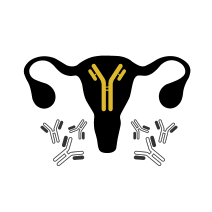Prenatal Genetic Screening and Diagnosis: A Complete Guide for Expecting Parents
Prenatal genetic screening and diagnosis play a crucial role in identifying potential genetic conditions in a developing fetus. These tests help expecting parents make informed decisions about their pregnancy and prepare for any medical needs their baby may have. With advancements in medical technology, prenatal testing has become more accurate and accessible, offering peace of mind and valuable insights into fetal health.
In this article, we will explore what is prenatal genetic screening and diagnosis, the different types of tests available, their benefits, risks, and who should consider them.
What Is the Goal for Prenatal Genetic Testing
The primary goal of prenatal genetic screening is to identify potential genetic disorders or chromosomal abnormalities early in pregnancy. Prenatal genetic testing involves assessing a developing baby’s DNA, chromosomes, or proteins to detect genetic conditions or chromosomal abnormalities.
There are two types of Prenatal genetic testing options:
- Prenatal Genetic Screening : Also known as Non-Invasive Prenatal Testing (NIPT) , it identifies the risk of a fetus having specific genetic disorders but does not confirm them.
- Prenatal Genetic Diagnosis: Provides a definitive diagnosis of a genetic condition through invasive testing methods like amniocentesis or chorionic villus sampling (CVS).
Prenatal genetic screening involves various non-invasive tests like maternal blood tests, ultrasound examinations, and these tests assess the risk of conditions such as Down syndrome, Edwards syndrome, Patau syndrome, and others.
The information obtained from prenatal genetic screening influences Pregnancy management. A screening test indicates an increased risk, yet, it does not provide a definitive diagnosis. It alerts healthcare providers to the need to perform Prenatal Genetic Diagnosis, thereby, enabling them to offer additional counseling, support, and options for further evaluation.
Based on the results, the Healthcare providers provide appropriate care plans tailored to the specific needs of the fetus and the expectant parents in cases where a diagnosis of a genetic condition is confirmed. This may include specialized monitoring, early interventions, specialized consultations, and preparation for the birth of a child with specific medical needs.
The information obtained from prenatal genetic screening also allows for proactive decision-making. Expectant parents can prepare emotionally, gather necessary resources, seek additional support networks, and make informed choices about the future of the pregnancy.
It’s important to consult with a healthcare provider or genetic counselor for detailed and personalized information regarding Prenatal Screening and Diagnosis, including its benefits, limitations, and specific recommendations based on individual circumstances. They can guide expectant parents through the entire process and address any concerns or questions along the way, ensuring a comprehensive understanding of the results and appropriate next steps.
Who Should Consider PGT?
Prenatal genetic screening and diagnostic tests are optional, but, they may be recommended for:
- Women aged 35 or older (higher risk of chromosomal abnormalities).
- Parents with a family history of genetic conditions.
- Couples who are carriers of inherited disorders.
- Women with abnormal ultrasound findings.
- Those who had previous pregnancies with genetic conditions.





